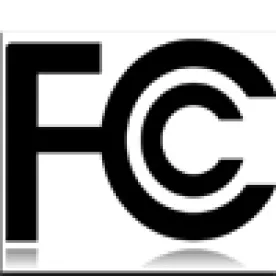Legislative Activity
Senate Sees Flurry of Proposed Spectrum Legislation
Three spectrum-related bills or drafts thereof have been introduced in the Senate.
First, on November 3, Sen. Joe Manchin (D-WV) introduced S.2227, the Private Spectrum Relocation Funding Act of 2015. The bill would amend the National Telecommunications and Information Administration Organization Act, (NTIA Act), 47 U.S.C. §§ 901-942, to allow federal agencies to accept certain payments from private entities related to spectrum efficiency and reallocation. Under the NTIA Act, the Secretary of Commerce has a duty to evaluate the government’s use of its spectrum and identify certain bands that could feasibly be reallocated away from government use to private uses. The NTIA Act further instructs federal entities that operate on spectrum that has been slotted for reallocation to take prompt action expedite any such transfer or reallocation. The present bill would permit federal agencies seeking to transition their spectrum from government to private use under a plan approved by the NTIA to accept money from private entities to accelerate such transitions. In this way, the proposed legislation aims to incentivize efficient use of government spectrum and the reallocation of government spectrum to private use. The bill was referred to the Senate Committee on Commerce, Science, and Transportation (Senate Commerce Committee).
Subsequently, on November 6, Senate Commerce Committee Chairman John Thune (R-SD) released a discussion draft of a bill entitled the Making Opportunities for Broadband Investment and Limiting Excessive and Needless Obstacles to Wireless Act (MOBILE NOW Act). The bill, characterized as an enhancement to the Spectrum Pipeline Act included in the recently-passed omnibus budget bill, would require the government to free up 50 MHz of federal spectrum for broadband use rather than the 30 MHz currently required slated for reallocation in the Spectrum Pipeline Act. In addition, the bill would allow for leasing rather than auctioning of federal spectrum in certain circumstances. Another section of the bill would allow federal agencies to recover up t0 25 percent of the value of the spectrum they give up for auction. The draft bill has attracted the support of CTIA – The Wireless Association, which issued a brief statement applauding Chairman Thune’s efforts.
Finally, on November 10, Sen. Brian Schatz (D-HI) introduced a bill entitled the Promoting Unlicensed Spectrum Act. The bill calls for the creation of a National Unlicensed Spectrum Strategy to make adequate spectrum resources available for both licensed and unlicensed uses. The bill requires the Federal Communications Commission (FCC) to establish a process that will ensure that future spectrum allocations will produce a balance between licensed and unlicensed uses and requires the FCC to submit a report describing its strategy for achieving this balance to Congress. In a press release the National Cable & Television Association (NCTA) expressed support for the legislation, which the group said “recognizes the importance of unlicensed spectrum and the need for a focused national strategy.”
This Week’s Hearings:
-
Tuesday, November 17: The Communications and Technology Subcommittee of the House Commerce Committee will hold a hearing entitled “Oversight of the Federal Communications Commission.” All five FCC commissioners are scheduled to testify at the hearing.
Regulatory Activity
FCC Announces Final Agenda for November 19 Open Meeting
On November 12, the FCC released the final agenda for the agency’s next Open Meeting scheduled for Thursday, November 19:
-
Wireless Emergency Alerts: The FCC will consider a Notice of Proposed Rulemaking to “improve the effectiveness of [Wireless Emergency Alert (WEA)] message content and the geographic targeting of WEA messages, and facilitate WEA testing and proficiency training,” according to the final agenda.
-
Hearing Aid Compatibility: The FCC will consider a Report and Order and Notice of Proposed Rulemaking to “update the scope of the wireless hearing aid compatibility rules and seek comment on additional measures that would ensure greater deployment of hearing aid compatible wireless handsets,” according to the final agenda.
-
Accessibility of User Interfaces: The FCC will consider a Second Report and Order, Order on Reconsideration, and Second Further Notice of Proposed Rulemaking to “provide consumers with better information about the availability of accessible devices and features and create easier access to video programming and closed captioning on devices,” according to the final agenda.
-
Consent Agenda. The FCC will also consider a five-item consent agenda; those items are listed in the meeting agenda.
On October 29, FCC Chairman Wheeler posted to the FCC Blog discussing the three items. Marking his second anniversary at the Commission, the Chairman noted that the November 2015 open meeting agenda “reflects the very same priorities [he] spoke about on [his] first day,” including the Commission’s commitment to upholding “the core values that have historically defined our communications networks . . . access and public safety.” The Open Meeting is scheduled to commence at 10:30 a.m. in Room TW-C305 of the FCC’s headquarters, and can be streamed live at fcc.gov/live.
FCC Releases Revised Baseline Data and Prices for Broadcast Incentive Auction and Announces Revised Filing Deadlines
On November 12, the FCC announced in a Public Notice (PN) that it had released revised versions of the “baseline data” and reverse auction opening bid prices that it originally released as Appendix I of the Auction 1000 Application Procedures Public Notice. The reverse auction is the process by which the FCC will purchase spectrum from TV broadcasters to repurpose for mobile broadband use. The “baseline data” includes the “coverage area and population served of each television station to be protected in the repacking process” and will be used to “determine feasible channel assignments for each station,” according to the PN. The revision “corrects information for a small number of stations, and adjusts population data for stations that are affected by these corrections.” The FCC also revised the reverse auction opening bid prices to reflect the corrected baseline data.
Additionally, the FCC adjusted the filing windows for filing forms to participate in the incentive auction. Broadcasters that want to participate in the reverse auction must file Form 177 between 12 p.m. EST on December 8, 2015 and 6 p.m. EST on January 12, 2016. Entities that want to purchase spectrum in the forward auction, where the spectrum purchased from the broadcasters will be sold, must file Form 175 between 12 p.m. EST on January 26, 2016 and 6 p.m. EST on February 9, 2016.





 />i
/>i

